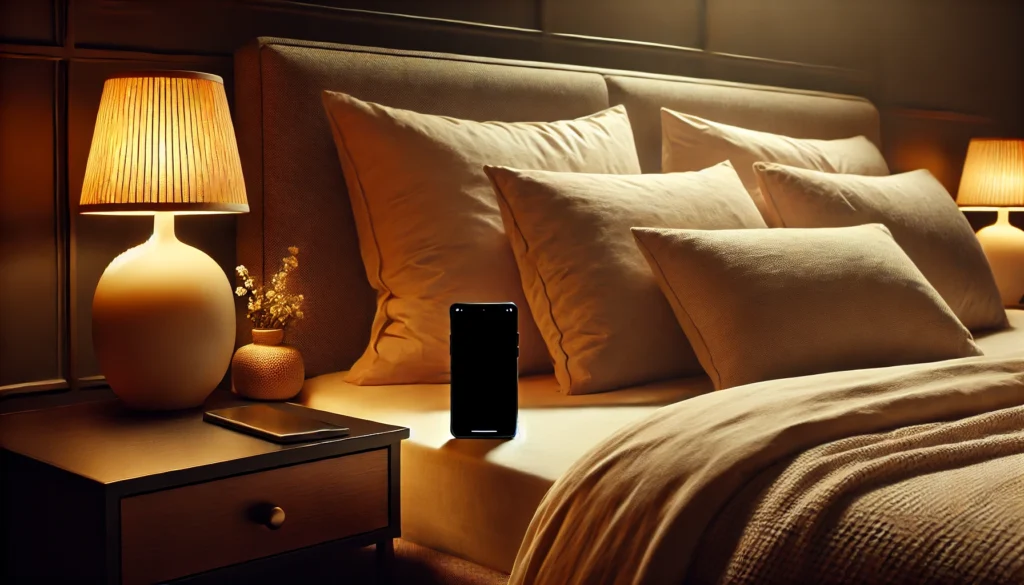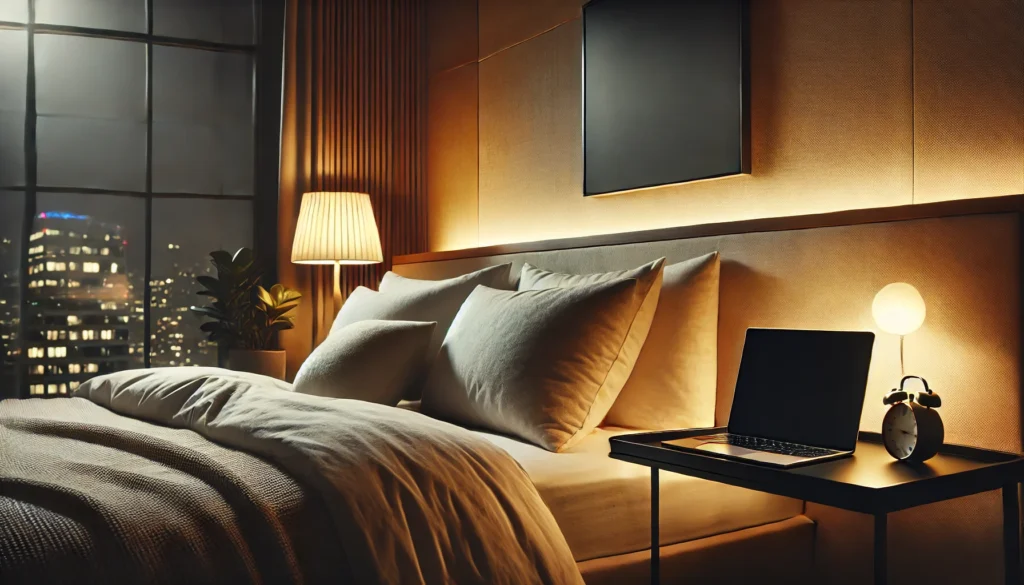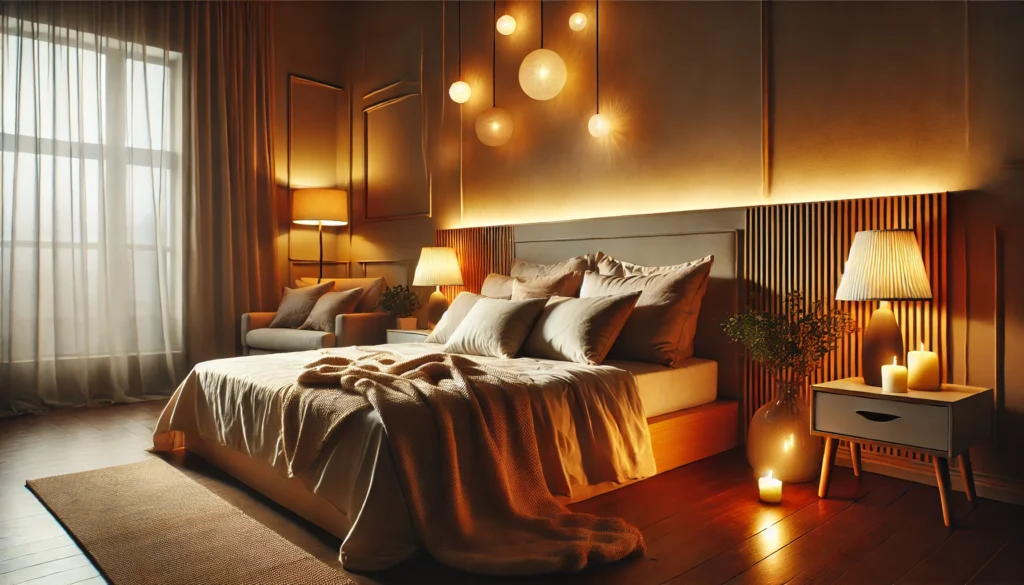In our fast-paced, technology-driven world, sleep often takes a backseat. However, the importance of quality rest cannot be overstated. With an increasing awareness of sleep’s critical role in health and wellness, many are turning to technology for solutions. Enter sleep apps—tools designed to help you achieve better rest, track sleep patterns, and combat insomnia. In this guide, we’ll explore some of the top-rated sleep apps available today, suitable for both Android and iOS users.
You May Also Like: Ultimate Guide to Sleep Tracker Apps
The Science Behind Sleep Apps
Sleep apps utilize a range of scientific principles to improve sleep quality. Many incorporate techniques such as cognitive behavioral therapy (CBT), soundscapes, meditation, and sleep cycle tracking. These applications aim to address various aspects of sleep, from difficulty falling asleep to staying asleep through the night.
Understanding Sleep Cycles
One of the foundational elements of many sleep apps is their ability to monitor and analyze sleep cycles. Our sleep is structured in cycles, typically 90 minutes long, consisting of different stages: light sleep, deep sleep, and REM (Rapid Eye Movement) sleep. By understanding these cycles, apps can provide insights into your sleep quality and suggest optimal wake-up times.
Understanding sleep cycles can also help identify sleep disorders. Many apps use accelerometers to detect movement during sleep, which is then analyzed to determine the different stages. This data can help pinpoint issues like frequent awakenings or prolonged periods in light sleep, which might suggest underlying problems.
In addition to cycle tracking, some apps offer hypnograms—visual representations of your sleep stages throughout the night. These charts can be a valuable tool for understanding your sleep architecture and identifying patterns over time.
The Role of Sound and Meditation
Sound therapy and meditation are often used to create a relaxing environment conducive to sleep. Whether through white noise, nature sounds, or guided meditations, these features can help reduce anxiety and promote relaxation, leading to better sleep onset and quality.
Soundscapes can mask disruptive noises, such as traffic or snoring, allowing for a more peaceful sleep environment. By offering a wide array of sounds, users can customize their experience to find what best helps them relax.
Meditation and mindfulness exercises included in sleep apps can be effective in calming an overactive mind. These practices often focus on deep breathing and progressive relaxation techniques, which can lower heart rate and prepare the body for sleep.
Combining sound therapy with meditation can enhance the effectiveness of both. Many sleep apps offer playlists or programs that integrate these elements to maximize relaxation and improve sleep quality.
Cognitive Behavioral Techniques
Cognitive Behavioral Therapy for Insomnia (CBT-I) is a structured program that helps combat the underlying causes of insomnia. Some sleep apps include elements of CBT-I, such as sleep restriction and stimulus control, to help users develop healthier sleep habits.
CBT-I focuses on changing unhelpful sleep-related thoughts and behaviors. Apps that incorporate CBT techniques often provide exercises and educational content to help users identify and alter negative thought patterns.
These apps may also offer tools to help track progress and set sleep goals. By providing feedback and suggestions, users are encouraged to gradually improve their sleep habits and environment.
Journaling features are another common component of CBT-based sleep apps. By logging sleep-related thoughts and feelings, users can gain insight into stressors and triggers that may be affecting their sleep.

Top-Rated Sleep Apps
Choosing the right sleep app can be daunting, given the plethora of options available. Here, we highlight some of the best sleep apps across various platforms.
Best Sleep Apps for Android
1. Sleep as Android
This app is a comprehensive sleep tracking tool that integrates with smartwatches and other devices. It offers features like sleep cycle tracking, snoring detection, and smart alarms. Sleep as Android has consistently been rated as one of the best free Android sleep apps, making it a favorite among users.
Sleep as Android also provides detailed sleep charts and statistics, helping users understand their sleep patterns over time. The app’s smart alarm gently wakes users during their lightest sleep phase, reducing grogginess upon waking.
In addition to its core features, Sleep as Android offers integration with health platforms, allowing users to sync their sleep data with other health metrics. This holistic approach can provide a more comprehensive view of overall health and wellness.
2. Calm
While not exclusively a sleep app, Calm offers a wide range of sleep stories, meditations, and soundscapes aimed at improving sleep quality. Its user-friendly interface and extensive library make it a top-rated choice for anyone looking to enhance their sleep routine.
Calm’s sleep stories are narrated by soothing voices and designed to transport listeners to a state of relaxation, making it easier to drift off. The app also offers programs specifically tailored for stress reduction and anxiety management, which can indirectly improve sleep quality.
Calm’s meditation features are diverse, catering to both beginners and experienced practitioners. Users can select sessions based on their specific needs, whether it’s easing into sleep or unwinding after a long day.
3. Headspace
Headspace is renowned for its meditation and mindfulness offerings, but it also includes targeted content for improving sleep. With its focus on mental well-being, Headspace helps users create a calm mind and body environment conducive to restful sleep.
The app features “Sleepcasts,” which are audio experiences designed to help users wind down. These are complemented by guided meditations and breathing exercises that promote relaxation and stress relief.
Headspace’s sleep programs often incorporate visualization techniques and body scanning exercises, which can help users let go of daily stressors and prepare for sleep.
Best iPhone Sleep Apps
1. Pzizz
Pzizz combines sleep-optimized music, voiceovers, and sound effects to create a unique sleep experience. It aims to help users fall asleep faster, stay asleep, and wake up refreshed. Pzizz is particularly noted for its ability to help with insomnia and is one of the best sleep apps for iPhone.
The app’s “dreamscapes” are carefully crafted sound environments that change each night, preventing habituation and maintaining their effectiveness. This dynamic approach keeps the sleep experience fresh and engaging.
Pzizz also includes a nap mode, which provides short, rejuvenating sleep sessions to boost energy and alertness during the day. This feature can be particularly useful for those needing quick rest periods without entering deep sleep.
2. Sleep Cycle
Sleep Cycle tracks your sleep patterns and wakes you up during your lightest sleep phase, ensuring you start your day feeling refreshed. It’s regarded as the best sleep tracker app for iPhone users due to its detailed analysis and smart alarm feature.
The app’s innovative sound analysis technology captures sleep data without needing to place the phone in bed, offering a hassle-free experience. Users can also explore trends and statistics to better understand their sleep behaviors.
Sleep Cycle’s intelligent alarm clock is customizable, allowing users to set a wake-up window and choose from a variety of pleasant alarm sounds. This gentle approach to waking can significantly improve morning mood and energy levels.
3. Relax Melodies
Relax Melodies allows you to create your own sound mixes to lull you into a restful sleep. With a variety of sounds and guided meditations, this app offers a customizable sleep experience without the need for a subscription.
The app’s library includes a vast array of sounds, from nature noises to city ambiances, catering to diverse preferences. Users can experiment with different combinations to find the most soothing mix for their sleep environment.
Relax Melodies also offers sleep meditations and breathing exercises to help reduce stress and anxiety, further enhancing its effectiveness as a sleep aid.

Sleep Monitoring Apps for Apple Watch
1. AutoSleep
AutoSleep stands out as the best sleep monitoring app for Apple Watch users. It automatically tracks your sleep without requiring you to press any buttons. With a robust data analysis feature, AutoSleep provides deep insights into your sleep patterns, helping you make informed decisions about your sleep habits.
AutoSleep’s detailed sleep reports include metrics such as sleep duration, quality, and efficiency, offering a comprehensive view of your nightly rest. The app also tracks heart rate and movement, adding another layer of insight into your sleep health.
The app’s integration with the Health app allows users to view their sleep data alongside other health metrics, providing a holistic understanding of how sleep impacts overall well-being.
2. Pillow
Pillow is another excellent option for Apple Watch users. It offers a detailed sleep analysis, heart rate tracking, and personalized sleep recommendations. Pillow’s intuitive design and comprehensive features make it a top-rated sleep app for Apple Watch.
Pillow’s sleep analysis includes visual representations of sleep stages, helping users identify patterns and potential disruptions. This information can be invaluable for those looking to improve their sleep quality.
The app also offers personalized recommendations based on the user’s sleep data, encouraging healthier sleep habits and routines. This tailored approach makes Pillow a powerful tool for optimizing sleep.
3. NapBot
NapBot is a relatively new contender in the sleep tracking space but has quickly gained popularity among Apple Watch users. It provides automatic sleep detection and offers insightful sleep analysis without requiring manual input.
NapBot uses machine learning algorithms to adapt to the user’s sleep patterns, ensuring accurate and personalized data. This smart approach allows for a deeper understanding of sleep habits and potential improvements.
The app’s focus on simplicity and ease of use makes it an attractive option for those new to sleep tracking or seeking a straightforward solution.
Free Sleep Apps with No Subscription
For those seeking effective sleep apps without a subscription fee, consider the following options:
1. Relax Melodies
Relax Melodies allows you to create your own sound mixes to lull you into a restful sleep. With a variety of sounds and guided meditations, this app offers a customizable sleep experience without the need for a subscription.
The app’s extensive sound library caters to a wide range of preferences, offering users the flexibility to mix and match sounds to create their ideal sleep environment. This customization can significantly enhance relaxation and sleep quality.
Relax Melodies also includes sleep meditations and breathing exercises designed to reduce stress and anxiety, further supporting a restful night’s sleep. This comprehensive approach makes it a valuable tool for anyone seeking better sleep without a financial commitment.
2. White Noise Lite
Perfect for those who find comfort in consistent ambient sounds, White Noise Lite provides a plethora of sound options to choose from. It’s simple, effective, and completely free to use.
The app’s minimalist design makes it easy to navigate, allowing users to quickly find and play their preferred sounds. This simplicity makes it an ideal choice for those who want a no-frills sleep solution.
White Noise Lite’s sound library is extensive, featuring everything from fan noises to ocean waves. These ambient sounds can help mask disruptive noises and create a more peaceful sleep environment.
3. Sleepo
Sleepo offers a collection of high-quality sounds, such as rain, nature sounds, and city ambiances, to help users relax and sleep better. The app’s simple interface and free access make it a popular choice for those seeking a cost-effective sleep aid.
Users can mix sounds to create their perfect sleep soundtrack, enhancing the app’s effectiveness in promoting relaxation and sleep. This level of customization can be particularly beneficial for those with specific sound preferences.
Sleepo’s offline functionality ensures that users can access their favorite sounds without the need for an internet connection, making it a convenient option for travel or areas with limited connectivity.

Future Trends in Sleep Technology
As technology advances, so do the capabilities of sleep apps. The future holds exciting possibilities, such as more personalized sleep solutions powered by artificial intelligence and machine learning. These advancements will likely provide even deeper insights into individual sleep habits and offer highly tailored recommendations.
AI-driven sleep apps will be able to analyze vast amounts of data to identify subtle patterns and correlations, leading to more accurate sleep assessments. This could result in personalized interventions that address specific sleep issues and enhance overall sleep quality.
Integration with other health and wellness technologies, such as fitness trackers and health monitoring devices, is expected to become more seamless, offering a holistic view of one’s health and sleep patterns. This interconnected approach will enable users to see how lifestyle factors, like exercise and diet, impact their sleep.
Virtual reality (VR) and augmented reality (AR) could also play a role in the future of sleep technology. These immersive technologies might offer new ways to create calming environments or simulate relaxing experiences that promote better sleep.
Practical Tips for Using Sleep Apps
To maximize the benefits of sleep apps, consider the following tips:
- Consistency is Key: Use your chosen sleep app regularly to track patterns and gather useful data. Regular use will help the app provide more accurate insights and recommendations, leading to better sleep outcomes.
- Combine with Good Sleep Hygiene: While apps can be helpful, they’re most effective when used alongside good sleep hygiene practices like maintaining a regular sleep schedule, creating a restful environment, and avoiding caffeine before bed. These practices support the app’s efforts in promoting better sleep.
- Be Open to Adjustments: Use the insights provided by the app to make necessary adjustments to your sleep habits and routines. This may involve changing your bedtime, altering your sleep environment, or adopting new relaxation techniques.
- Experiment with Features: Explore different features and settings within the app to find what works best for you. Customizing the app to your preferences can enhance its effectiveness and improve your overall sleep experience.
- Monitor Progress: Regularly review the data and insights provided by the app to track your progress. This can help you stay motivated and identify areas for further improvement in your sleep habits.
Conclusion
Sleep apps offer a convenient and accessible way to enhance your sleep quality and overall well-being. By leveraging technology, they provide insights and tools that can significantly improve how you rest. Whether you’re struggling with insomnia or simply looking to optimize your sleep, there’s likely a sleep app that fits your needs.
Incorporate these digital tools into your nightly routine and take a step closer to achieving better rest and improved health. With the right sleep app, restful nights are well within reach.
By embracing the power of technology and making informed choices about your sleep habits, you can unlock the full potential of your nightly rest and enjoy the numerous benefits that come with quality sleep.
Further Reading:
Important Note: The information contained in this article is for general informational purposes only, and should not be construed as health or medical advice, nor is it intended to diagnose, prevent, treat, or cure any disease or health condition. Before embarking on any diet, fitness regimen, or program of nutritional supplementation, it is advisable to consult your healthcare professional in order to determine its safety and probable efficacy in terms of your individual state of health.
Regarding Nutritional Supplements Or Other Non-Prescription Health Products: If any nutritional supplements or other non-prescription health products are mentioned in the foregoing article, any claims or statements made about them have not been evaluated by the U.S. Food and Drug Administration, and such nutritional supplements or other health products are not intended to diagnose, treat, cure, or prevent any disease.


